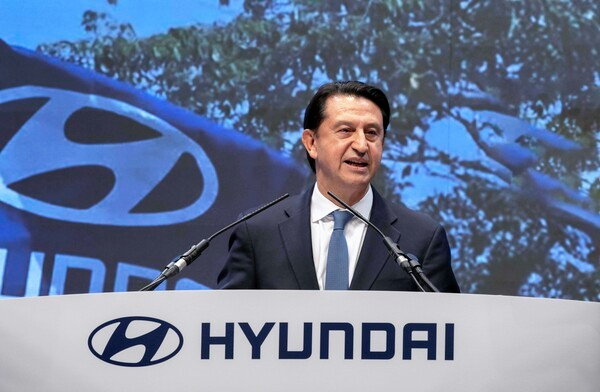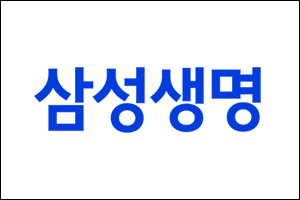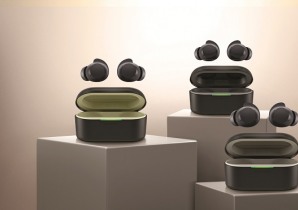
Hyundai Motor President, José Muñoz
José Muñoz joined Hyundai Motor in 2019 as Global COO and Head of the North and South America regional headquarters (President). Under his leadership, Hyundai’s sales strategy—focused on high-value models such as hybrids, SUVs, and electric vehicles—propelled the automaker to become the world’s third-largest automaker by sales volume.
Building on these achievements, José Muñoz became Hyundai Motor’s first foreign CEO. However, the operating environment for Hyundai this year is far from easy.
In particular, as tariff risks under the Trump administration become a reality, Hyundai Motor is facing growing challenges in devising countermeasures.
Hyundai Motor and Kia sold a combined 893,152 vehicles in the U.S. in the first half of this year, accounting for about 40% of their total exports. This marks a new all-time high, up 9.2% from the same period last year. Hyundai sold 476,641 units (up 10.5%), while Kia sold 416,511 units (up 7.8%).
However, the Trump administration began imposing a 25% tariff on all imported vehicles in April and expanded it to auto parts in May, which is expected to erode profitability. Indeed, combined U.S. auto exports by Hyundai and Kia in the first half fell 16.8% from a year earlier to USD 15.34 billion.
According to FnGuide, Hyundai Motor and Kia’s second-quarter operating profits are estimated at KRW 3.612 trillion and KRW 3.082 trillion, respectively, down 15.6% and 15.4% year-on-year. Korea Investment & Securities estimates that tariff burdens for Hyundai and Kia will rise to KRW 5.127 trillion and KRW 4.216 trillion, respectively, for a combined KRW 9.343 trillion.
In response to U.S. tariff risks, José Muñoz is focusing on expanding local production capacity. Hyundai Motor Group Metaplant America (HMGMA) will increase its annual production from 300,000 to 500,000 units, with the Alabama and Georgia plants further boosting total U.S. output to 1.2 million units per year.
Hyundai Motor is also strengthening “mixed production,” where different types of vehicles, such as the IONIQ 5 and IONIQ 9, are produced on a single line. President José Muñoz—who personally oversaw the construction of HMGMA—has been a strong advocate for mixed hybrid production.
As a marketing expert, José Muñoz is reinforcing local promotions to maintain Hyundai’s U.S. market share. Hyundai Motor America recently extended its official vehicle discount program to Sept. 2. With local rivals Ford and GM raising prices due to tariffs, Hyundai aims to maintain price competitiveness.
Investment is now guided by “selection and concentration.” Hyundai Motor Group announced in March a plan to invest USD 21 billion (about KRW 30 trillion) in the U.S. over the next four years. As a result, future projects such as UAM (urban air mobility), autonomous driving, and robotics—originally earmarked for growth—are being scaled back. Hyundai last year announced plans to invest about KRW 22 trillion in these projects.
For example, Hyundai Motor’s Supernal—the startup pursuing commercial air taxis—recently laid off about 8% of its workforce as part of restructuring. Earlier this year, Hyundai Motor laid off 5% of the workforce at its robotics affiliate, Boston Dynamics. The company also implemented job cuts at Motional, its autonomous driving joint venture, last year. These companies are responsible for future businesses but currently incur more R&D expenses than profits.
At the same time, José Muñoz continues to engage in active field management through employee town hall meetings, seeking to unite employees to overcome uncertainty.
He held his first town hall at the Namyang R&D Center in February, introducing his strategy to about 800 employees. In March, he visited Hyundai’s U.K. operations and Hyundai Motor India in Gurugram. Most recently, in June, he visited regional business sites for the first time, checking on sales and marketing.
At these meetings, José Muñoz emphasized, “Amid geopolitical uncertainty in the third quarter, let’s focus on what we can control. What we can control is providing customers with beautifully designed, high-quality, and safe vehicles.”
Kim JaeHun (rlqm93@fntimes.com)


































![[기자수첩] ‘원금 보장·투자 수익' IMA 가입해보니](https://cfnimage.commutil.kr/phpwas/restmb_setimgmake.php?pp=006&w=69&h=45&m=5&simg=2026011802554705191dd55077bc25812315214.jpg&nmt=18)












![[카드뉴스] 하이퍼 인플레이션, 왜 월급이 종잇조각이 될까?](https://cfnimage.commutil.kr/phpwas/restmb_setimgmake.php?pp=006&w=298&h=298&m=1&simg=202601141153149784de68fcbb3512411124362_0.jpg&nmt=18)
![[카드뉴스] 주식·채권·코인까지 다 오른다, 에브리싱 랠리란 무엇일까?](https://cfnimage.commutil.kr/phpwas/restmb_setimgmake.php?pp=006&w=298&h=298&m=1&simg=202601071630263763de68fcbb3512411124362_0.jpg&nmt=18)
![[카드뉴스] “이거 모르고 지나치면 손해입니다… 2025 연말정산 핵심 정리”](https://cfnimage.commutil.kr/phpwas/restmb_setimgmake.php?pp=006&w=298&h=298&m=1&simg=202601061649137526de68fcbb3512411124362_0.jpg&nmt=18)
![[카드뉴스] KT&G, 제조 부문 명장 선발, 기술 리더 중심 본원적 경쟁력 강화](https://cfnimage.commutil.kr/phpwas/restmb_setimgmake.php?pp=006&w=298&h=298&m=1&simg=202509241142445913de68fcbb3512411124362_0.png&nmt=18)
![[카드뉴스] KT&G ‘Global Jr. Committee’, 조직문화 혁신 방안 제언](https://cfnimage.commutil.kr/phpwas/restmb_setimgmake.php?pp=006&w=298&h=298&m=1&simg=202503261121571288de68fcbb3512411124362_0.png&nmt=18)
![[신간] 고수의 M&A 바이블](https://cfnimage.commutil.kr/phpwas/restmb_setimgmake.php?pp=006&w=81&h=123&m=5&simg=2025091008414900330f8caa4a5ce12411124362.jpg&nmt=18)
![[신간] 리빌딩 코리아 - 피크 코리아 극복을 위한 생산성 주도 성장 전략](https://cfnimage.commutil.kr/phpwas/restmb_setimgmake.php?pp=006&w=81&h=123&m=5&simg=2025032814555807705f8caa4a5ce12411124362.jpg&nmt=18)
![[서평] 추세 매매의 대가들...추세추종 투자전략의 대가 14인 인터뷰](https://cfnimage.commutil.kr/phpwas/restmb_setimgmake.php?pp=006&w=81&h=123&m=5&simg=2023102410444004986c1c16452b0175114235199.jpg&nmt=18)

![[신간] 이게 화낼 일인가?](https://cfnimage.commutil.kr/phpwas/restmb_setimgmake.php?pp=006&w=81&h=123&m=5&simg=2026010610254801367f8caa4a5ce12411124362.jpg&nmt=18)
![[신간] 조금 느려도 괜찮아...느림 속에서 발견한 마음의 빛깔](https://cfnimage.commutil.kr/phpwas/restmb_setimgmake.php?pp=006&w=81&h=123&m=5&simg=20251105082239062852a735e27af12411124362.jpg&nmt=18)

![[AD] 현대차, 글로벌 안전평가 최고등급 달성 기념 EV 특별 프로모션](https://cfnimage.commutil.kr/phpwas/restmb_setimgmake.php?pp=006&w=89&h=45&m=1&simg=20260106160647050337492587736121125197123.jpg&nmt=18)
![[AD] 현대차 ‘모베드’, CES 2026 로보틱스 부문 최고혁신상 수상](https://cfnimage.commutil.kr/phpwas/restmb_setimgmake.php?pp=006&w=89&h=45&m=1&simg=20260105103413003717492587736121125197123.jpg&nmt=18)
![[AD] 기아 ‘PV5’, 최대 적재중량 1회 충전 693km 주행 기네스 신기록](https://cfnimage.commutil.kr/phpwas/restmb_setimgmake.php?pp=006&w=89&h=45&m=1&simg=20251105115215067287492587736121125197123.jpg&nmt=18)
![[카드뉴스] KT&G, 제조 부문 명장 선발, 기술 리더 중심 본원적 경쟁력 강화](https://cfnimage.commutil.kr/phpwas/restmb_setimgmake.php?pp=006&w=89&h=45&m=1&simg=202509241142445913de68fcbb3512411124362_0.png&nmt=18)
![[AD]‘황금연휴에 즐기세요’ 기아, ‘미리 추석 페스타’ 이벤트 실시](https://cfnimage.commutil.kr/phpwas/restmb_setimgmake.php?pp=006&w=89&h=45&m=1&simg=20250903093618029117492587736121166140186.jpg&nmt=18)




